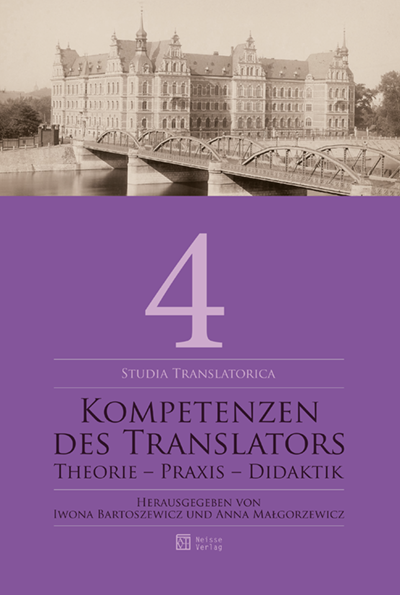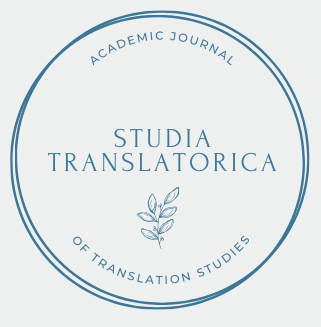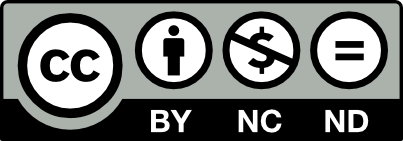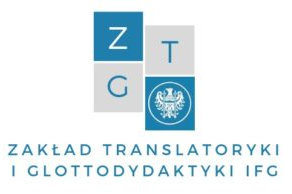
Studia Translatorica
Issue 4 (2013): Kompetenzen des Translators. Theorie - Praxis - Didaktik
Edited by: Iwona Bartoszewicz and Anna Małgorzewicz
Probleme? Nichts weiter als dornige Chancen: Zu Parametern und Maßeinheiten der Eye-Tracking-Translatorik / Problems? Nothing more than thorny chances: The parameters and measures of the eye-tracking translation studies
DOI: --- (published online: 2020-10-18)
Keywords: eye-tracking, parameters, metrics, methodology, translation studies
Eye-tracking translation studies are based on the assumption that, on the one hand, eyeball movements are motivated by mental processes, and on the other hand, mental processes are motivated by eyeball movements. The standardisation of methodology, especially the lack of standard parameters, with the help of which eye-tracking experiments can be performed and analysed, is the most important issue of eye-tracking research. A non-standardised eye-tracking methodology implies that the comparison of eye-tracking research results is hardly possible. This paper proposes how eye-tracking research within translation studies can be standardised.
Des Simultandolmetschers rätselhafte Kompetenzen / Simultaneous interpreter’s mysterious skills
DOI: --- (published online: 2020-10-18)
Keywords: simultaneous interpreting, interpreter’s skills, probabilistic model, probability prediction, interpreting procedures, form-based interpreting, meaning-based interpreting
According to Zybatow (2008) the development of an adequate, reality-related explanatory theory of translation/interpreting crucially depends on the answer to the following three fundamental questions: 1. How does the translator/interpreter comprehend the source text? 2. How does s/he translate/interpret the text from the source language into the target language? What knowledge systems are engaged and activated by this activity? How sophisticated and developed must these knowledge systems be to fulfil the respective translatory procedure successfully? 3. How does the translator/interpreter produce the target text? Proceeding from this assumption the paper poses the question and examines what takes place in simultaneous interpreting (SI) focussing on the psycholinguistic model of probability prediction (Chernov/Černov 1994/1978;1987) and the investigations into the empirical reality of two different paradigmatic procedures in SI: form-based vs meaning-based interpreting developing a hypothesis of how the mysterious skills of simultaneous interpreters can find an adequate theoretical mapping and better explanation and drawing the conclusions with implications both for the theory and the pedagogy of SI.
Typologie strategischer Ausgangstextkompressionen im Prozess des Simultandolmetschens / The typology of strategic source text compression processes in simultaneous interpreting
DOI: --- (published online: 2020-10-18)
Keywords: simultaneous interpreting, interpreting strategies, interpreting competence, source text compression
The aim of this work is to present a complex typology of source text compression strategies characteristic of simultaneous interpreting as significant elements of interpreting competence. A brief description of the specificity of simultaneous interpreting and related determinants of source text compression is followed by the typology of techniques and forms of strategic source text compression illustrated by examples obtained in empirical studies.
Festigung und Ausbau der Kompetenz in der Fachtextproduktion am Beispiel juristischer Phraseologie / Consolidation and development of competence in specialized text production exemplified by legal phraseology
DOI: --- (published online: 2020-10-18)
Keywords: LSP phraseology, legal phraseology, competence in foreign LSP
Terms are the most characteristic feature of languages for specific purposes. However, they do not occur in isolation but are always used in combination. The knowledge of fixed and restricted word combinations in languages for specific purposes (LSP phraseology) is indispensable for specialized text production. That is why the present paper focuses on LSP phraseology and suggests some examples of exercises that can be used to consolidate and develop competence in specialized text production in specialized translation training. Using LSP phraseology will be exemplified by legal phraseology.
Zur forensischen Kompetenz eines vereidigten Translators / Forensic competence of a sworn translator
DOI: --- (published online: 2020-10-18)
Keywords: translation studies, translation standards, sworn translator, translation competence, forensic competence
The article provides an analysis of a sworn translator’s forensic competence. Reviewing Polish and German literature and also the EN 15038 standard ‘Translation Services. Service Requirements’, which is applicable in Poland, the author states that a sworn translator’s forensic competence covers not only linguistic competence, but first and foremost translation competence (in the area of both oral and written translation), specialist competence (specialist knowledge and terminology), cultural competence (knowledge of legal systems in the source language and target language countries), translator’s competence (translator’s professional skills) and ethical competence (translator’s impartiality). In the author’s opinion, a holder of a non-translation degree even with an excellent command of a foreign and native language does not have the above mentioned types of competence. This means that – having only linguistic competence – they need specialist education and many years’ experience without which they will not be able to practice as a sworn translator within the judicial system.
Aspekt kognitywny w przekładzie specjalistycznym, czyli co wspólnego ma tłumaczenie specjalistyczne z literackim? / Cognitive aspects of technical translation. What are the commonalities between a technical and a literary translation?
DOI: --- (published online: 2020-10-18)
Keywords: cognitive aspect, technical translation, literary translation, differences and commonalities
The necessity of finding or producing a precise counterpart or equivalent in a target language has often been considered the main, if not the most difficult problem of technical translation. The aim of this article is to show, on the basis of an example – a short description of the pollutant cadmium – that technical translation (e.g. the translation of owners’ manuals, user guides or texts that contain a high degree of technical or specialized terminology) requires, in addition to correct wording, a sound understanding of the meaning of the source text; cognitive complements play an equally as important role in technical translation as in other types of translation. It is not only the transfer of meaning from one language to another, but also the rendering of the complexity of an author’s language that determine the difficulty of a literary translation (e.g. the translation of novels, short stories, plays, poems, etc.). An Italian translation of a short poem, “On Passing the New Menin Gate” by Siegfried Sassoon, originally written in English, shows the extent to which cognitive complements help to solve language problems in literary translation. In both technical and literary translation, sense clearly shapes the expressiveness of the target language.
Die translatorische Kompetenz in der Praxis – Analyse der Übersetzungen deutscher Sagen ins Polnische / Translator’s competence in practice – an analysis of the translation of German legends and folk stories into Polish
DOI: --- (published online: 2020-10-18)
Keywords: folk stories, legends, translations, translation competence
The article presents an analysis of the translation of German legends and folk stories into the Polish language. The basis for the analysis is the folk stories collected by Richard Kühnau and entitled ‘Sagen der Grafschaft Glatz’, published in 1926. The translation was produced by the fifth year students at the Department of German Philology of Wrocław University and the students of the Post-diploma Training Studies for Translators of the German Language. On the example of the analysed translations, specific areas concerning translation competence are presented.
Kompetenzanforderungen an Übersetzer am Beispiel des Übersetzens von Namen für organisatorische Einheiten der Stadtverwaltung aus dem Polnischen ins Deutsche / Translator’s competence on the example of translating names of organizational units of the Municipal Council from Polish into German
DOI: --- (published online: 2020-10-18)
Keywords: proper names, mistakes, translator’s competence
Translation is a complex cognitive process whose effects are not always satisfactory. There are many reasons for the complexity of translation. One of them is the rendition of proper names. This article is concerned with translating names of organizational units from Polish into German. On the basis of the lexical material, I shall attempt to indicate the most common mistakes appearing in such translations. What is more, I shall try to ascertain what type of competence translators must possess in order to effectively render the aforementioned proper names.
Leben unter Blumen oder: Landsknechtshochzeit / Life surrounded by flowers or: The 30th Wedding Anniversary
DOI: --- (published online: 2020-10-18)
Keywords: small degree courses, translation / interpreting, occupational image, desiderata of training, occupational outlook, Erasmus
The article discusses the problems of small degree courses (covering so-called ‘orchid’ subjects) in the wake of demographic change, the restructuring of the scientific landscape and the requirements of the labour market. The degree courses in specialist translation at the University of Applied Sciences in Zittau/Görlitz will serve as an example of keeping up such traditions, at least in large parts. The study requirements, occupational image, labour market as well as fields of competence and employment will also play an important role. In addition, the paper mentions problems of differences in adhering to the principles of ‘Erasmus’ by German and Polish universities.
„Pirates aus der Karibik“. Ein chrematonischer Beitrag zur deutschsprachigen und polnischen Filmtitelübersetzung / ‘Pirates aus der Karibik’. A chrematonymical contribution to German and Polish translation of movie titles
DOI: --- (published online: 2020-10-18)
Keywords: film title, movie title, blockbuster title, translation, market influence
In this article the blockbuster titles are analyzed. We treat them as names (chrematonyms), which identify specific co-texts and are in principle translatable (literally, functionally, etc.) or can be expressed in the form of a new formulation with functional translation characteristics. A movie title is definitely a market product and as such has to be sold. The influence of the market cannot be denied, as well as the harmonious, chaos-free trends / strategies and the national conventions of translation, which are pointed out after the analysis. We may observe the strategies of loan word use (Germany) and translation (Poland) and see differences in the ways that the title as a translation excerpt is dealt with.
Skandinavische Filmtitel in der polnischen Übersetzung / Scandinavian film titles in Polish translation
DOI: --- (published online: 2020-10-18)
Keywords: translation technique, film title, equivalence
The paper deals with the translation of 160 Scandinavian film titles into Polish. The study investigates the structure and the functions of the film titles. Title translation is characterized by a variety of strategies leading to a variety of outcomes. The analysis confirms the use of specific transfer strategies: title identity, title analogy, title variation, title innovation. It is shown that the most frequently used translation strategies and procedures are literal translation (over 51%) and free translation (over 18%).
Filmtitel als Übersetzungsproblem am Beispiel der deutschen Fassung des Films „Evet, ich will“ ins Polnische / Film titles as a problem in translation – the example of translating “Evet, ich will” from German into Polish
DOI: --- (published online: 2020-10-18)
Keywords: film title, pragmatics, (inter)culturality, film translation, teaser
This article deals with the translation of film titles. It begins by describing basic problems and requirements which translators encounter when translating film titles. This is followed by the example of translating the film title “Evet, ich will” from German into Polish by a group of students at Opole University. The example underlines not only that problems in translation can be diverse and that sometimes a loss of meaning in the target language is inevitable, but also that the concepts and approaches of translators can diff er from those of their clients.
Übersetzer animierter Kinderfilme in Polen und ihre Kompetenzen / Translators of animated children’s films and their competences
DOI: --- (published online: 2020-10-18)
Keywords: dubbing, children’s films, translator’s competences
The paper discusses the audiovisual translators’ competences illustrated with examples of references to the Polish cultural background used in animated films for children. The paper attempts to answer the question whether audiovisual translators in Poland make excessive use of their intercultural competence and proves that it is the case. The examples of references to Polish films and TV series, songs, politicians and celebrities prove that the references are related either to the 60s-70s or to the latest events, thus contributing to the rapid ‘ageing process’ of translations.
Besonderheiten des Metapherngebrauchs bei der Realisierung von Sprechakten der Rechtfertigung im deutschen und ukrainischen politischen Diskurs / Peculiarities of metaphor use in the speech acts of justification in German and Ukrainian political discourse
DOI: --- (published online: 2020-10-18)
Keywords: justification, speech act, frame, metaphor, target, source
The article deals with the concept of justification in German and Ukrainian political discourse, its metaphorical counterparts and peculiarities of metaphor use in the speech acts of justification. The common and different sources of metaphors have been established, the similarities and differences of metaphor use in both languages have been analysed.
Auf der Suche nach Bewertungskriterien für Übersetzungen / In the search of criteria for assessing translation quality
DOI: --- (published online: 2020-10-18)
Keywords: adequacy, adequateness, equivalence, equipollency
The article takes on the issue that has long been discussed in professional linguistic literature regarding criteria for assessing translation quality, and highlights two terms which the author holds to be key criteria: ‘adequacy/adequateness’ (Adäquatheit) and ‘equivalence/equipollency’ (Äquivalenz). After etymological, definition-related commentary with reference to Polish and German sources, the author presents examples from his own practical experience in both translation and translation education which should serve to confirm and reinforce his thesis that these two terms, Adäquatheit and Äquivalenz, are more suitable assessment criteria than others. Finally, against this background, German-Polish technical dictionaries are critically analyzed.
Vom Objekt motivierte Subjektnamen im Polnischen und im Deutschen / Subject names motivated by the object in Polish and in German
DOI: --- (published online: 2020-10-18)
Keywords: the predicate-argument structure, semantic role, derivatives, compounds
The ordering of the Polish derivatives was based on their predicate-argument structure, analyzed in accordance with the Charles Fillmore ideas from “The Case for Case” (1968). As to the terms used in the analysis, the most important turned out to be the following: semantic role of the suffixal derivatives; motivating actant (motivierender Aktant); and incorporated actant, applicable in the case of derivatives formed from phrases. The collected suffixal derivatives were divided with reference to their semantic roles, and strictly connected with particular motivating actants (and incorporated actants). The results of this research study may facilitate the process of translating Polish texts into the German language.
Teiläquivalenz als Problem der Übersetzung: eine Analyse der polnischen Bezeichnung „kawalerka“ und ihrer Entsprechungen in zweisprachigen Wörterbüchern / Partial equivalence as a problem of translation – an analysis of the Polish term ‘kawalerka’ and its equivalents in bilingual dictionaries
DOI: --- (published online: 2020-10-18)
Keywords: translation, equivalence, cultural processes, bilingual dictionaries
The meanings of words in two or more languages are rarely identical. A translator who has to find an equivalent of a term often faces an extremely difficult task. The problem of partial equivalence which is one of the main points in a translator’s work originates in specific cultural processes. In this paper, partial equivalence as a translation problem is illustrated by the Polish term ‘kawalerka’ and its equivalents in bilingual dictionaries.
Dimensionen der Bildhaftigkeit in der literarischen Übersetzung – eine Analyse von ausgewählten Auszügen aus Ernst Jüngers Roman „Auf den Marmorklippen“ und seiner polnischen Übersetzung von Wojciech Kunicki / Dimensions of imagery in literary translation. An analysis of selected excerpts from Ernst Jünger’s novel Auf den “Marmorklippen” [“On the Marble Cliffs”] and its Polish translation by Wojciech Kunicki
DOI: --- (published online: 2020-10-18)
Keywords: cognitive linguistics, literary translation, imagery, scene construction, Jünger (Ernst)
The paper presents an analysis of the differences in scene construction between the original text of Ernst Jünger’s novel “Auf den Marmorklippen” [“On the Marble Cliffs”] and its Polish translation by Wojciech Kunicki. The results of the analysis provide evidence for the thesis that the cognitive research on dimensions of imagery enables a detailed description of the conceptual processes which determine the choice of language means used by both conceptualisers of the scene in a literary work: the author and the translator.
Is textual analysis possible in the postcolonial theory of translation? / Is textual analysis possible in the postcolonial theory of translation?
DOI: --- (published online: 2020-10-18)
Keywords: postcolonial theory of translation, translation assessment, Skovoroda, deterritorialization, hybridity, orality, colonial identity
The paper aims at discovering the textual values for translation quality assessment through the prism of the postcolonial theory of translation which should, supposedly, share some colonial textual symbols, key words and criteria, rising before the sheer colonial milieu got established. The well-known Ukrainian 18th-century philosopher, Hryhoriy Skovoroda, lived during the last decades of the period when Ukraine was a colony (1764/1786–1917). His mysticism and pursuit of happiness can also be interpreted as a way of escaping from or reacting to current political changes. Thus, the task of the paper is to discover the colonial perception of Ukrainian statehood via his philosophical piece ‘A Conversation Among Five Travellers Concerning Life’s True Happiness’. The case study is concerned with a number of theoretical issues: principles of translation quality assessment (by linguistic or hermeneutical means; the search for contrasting structures or key words); language and its functions (a language in a padlock of power and politics; a language versus a nation; does this bring any specific translation solutions?); political thinking and temporal limits (interpreting the 18th-century notions for a 21st-century reader); cultural signs of the epoch (the Bible as a colonizing text or a text for the colonized; all Old and Middle Ukrainian authors lavishly used quotes from the Bible: were the reasons purely religious, slightly social or partially political?). Accompanying questions and ideas for translation assessment concern the issue of intralingual translation (the 1770s Middle Ukrainian original and the 1994 Contemporary Ukrainian translation), the perception of the Other (remote places and distant events), the genesis of the concept ‘Motherland’ in Ukrainian and English.
The functions of prosody in Robert Frost’s verse ‘Fire and Ice’ and their reproduction in Ukrainian translations / The functions of prosody in Robert Frost’s verse ‘Fire and Ice’ and their reproduction in Ukrainian translations
DOI: --- (published online: 2020-10-18)
Keywords: prosody, functions of prosody, verse structure, poetic tradition, English-Ukrainian verse translation
This article entitled ”The functions of prosody in Robert Frost’s verse ‘Fire and Ice’ and their reproduction in Ukrainian translations” by N. Diomova discusses the role of prosody as a way to organize poetic speech in the above-mentioned anglophone verse and its Ukrainian translations by V. Kykot, N. Tysovska, V. Boychenko and V. Marach. The differences in the employment of prosody are analyzed, and the main functions of prosody that have to be taken into account in the process of translating this verse into Ukrainian are defined.
Veränderungen sprachlicher Bilder im Übersetzungsprozess am Beispiel der Dichtung von Tadeusz Różewicz / Alternations of linguistic views during translation of sample of Różewicz’s poetry
DOI: --- (published online: 2020-10-18)
Keywords: the language of Różewicz’s poetry, the language views in Różewicz’s poetry, alternation of language views during translation, differences between the language views in the source and target poems
Whatever we say or write we create linguistic views. They are important especially in poetry. The problem is how to treat these linguistic views in the translation because they always change. The changes don’t need to be huge, but they do influence reception of the text, e.g. the interpretation of the target text can be less (or more) ambiguous than the source text. The points of view or the relation between the foreground and the background can be different as well. This paper shows what happens with the linguistic views in the translation of the poetry of Tadeusz Różewicz.
Poezja Archilocha w tłumaczeniu Andrija Sodomory / The poetry of Archilochos in the translation by A. Sodomora
DOI: --- (published online: 2020-10-18)
Keywords: the idea of life vicissitudes, omnipotence of gods, stylistic dominant, antithesis
The article is devoted to the analysis of the translation by Andriy Sodomora of Archilochos’ poem ‘Всі шляхи богам відкриті’ (‘All roads are open to gods’ – translation L. H.). The peculiarities of the reproduction of the theme of life vicissitudes and gods’ omnipotence and the transference of the imagery structure, in particular, the stylistic dominant of the source text have been scrutinized in the article.
Shelley in der Ukraine: Rezeption von 1878 bis heute / Shelley in Ukraine: reception from 1878 until today
DOI: --- (published online: 2020-10-18)
Keywords: translation, translator’s techniques, evolution, reception, image, reproduction
The article describes the evolution of translation techniques and approaches to P.B. Shelley’s works in Ukraine throughout 135 years. The author devotes particular attention to I. Franko, the most monumental figure in Ukrainian literature. The reception of Shelley’s works is thoroughly outlined for the first time.
Besonderheiten der Wiedergabe von Titeln amerikanischer Prosawerke / Peculiarities of title rendition (based on the Ukrainian translations of American prose)
DOI: --- (published online: 2020-10-18)
Keywords: title, translation, artistic work, full equivalence, variable correspondence, translation transformations
The article discusses the peculiarities and approaches towards the title translation from English into Ukrainian. Titles are often perceived as microtexts since these brief phrases not only name the topic of an artistic work and reveal its main idea but also represent the whole artistic work. It has also been noted that translators apply the same approaches towards title translation as they do towards any artistic text. Thus, the use of various translation transformations appears to be the most productive approach in dealing with title translation.
Das Problem der Übersetzung von Namen am Beispiel des Kinderromans „Emil und die Detektive” von Erich Kästner / The issue of translating names based on the example of “Emil und die Detektive” by Erich Kästner, a novel for children
DOI: --- (published online: 2020-10-18)
Keywords: name class, name function, translating of names, adaptation of names, creating new names, omitting names
In the first chapter names are divided into people’s names (personal names), which encompass first names, last names, nicknames, aliases and pseudonyms, and the names of places. The second chapter deals with the function of names. The studied group of names can be assigned the following functions: classifying, locating, characterizing, expressive and teaching function. The third chapter is about the translation of names found in the analyzed novel for children. The following strategies are considered: maintaining original names; adaptation of names; creating names; omitting names. A demanding task connected with translating names is: translation of language games connected with names; translating nicknames.
Przekład literacki w międzywojennym Lwowie. Główne tendencje / Literary translation of the interwar period in Lviv. Towards the main trends
DOI: --- (published online: 2020-10-18)
Keywords: Ukrainian culture, literary translation, translator’s strategy, views of translation studies
The article includes a survey of translated literary works that appeared in Ukrainian periodicals and separately − within the series of foreign literature in Ukrainian translations in the first decades of the 20th century. Special emphasis is given to both the publishing conditions of that time and the key figures involved in the process. It is proved that the role of the Ukrainian artistic translation at that time was not limited to the aesthetic and informative functions. In fact, translation contributed to cultural enlightenment, shaped national identity and, ultimately, facilitated nation shaping in Ukraine. Such motivation for translation helped forge a function-oriented strategy, one driven by the need to develop and enrich the Ukrainian language and culture.
Olszewska, Izabela (2011): „Zur Übersetzung von Judaica in ausgewählten Werken der jiddischen Literatur“ (= Studia Germanica Gedanensia 24, Sonderband 7). Gdańsk: Wydawnictwo Uniwersytetu Gdańskiego. 298 S.
DOI: --- (published online: 2020-10-18)
Keywords:
Kubacki, Artur Dariusz (2012): „Tłumaczenie poświadczone. Status, kształcenie, warsztat i odpowiedzialność tłumacza przysięgłego.” Warszawa: Wyd. Wolters Kluwer. 369 S.
DOI: --- (published online: 2020-10-18)
Keywords:
Lukas, Katarzyna/ Olszewska, Izabela/ Turska, Marta (Hg.) (2013): „Translation im Spannungsfeld der ‚cultural turns‘“ (= Studien zur Germanistik, Skandinavisitik und Übersetzungskultur). Frankfurt am Main u.a.: Peter Lang. 235 S.
DOI: --- (published online: 2020-10-18)
Keywords:


